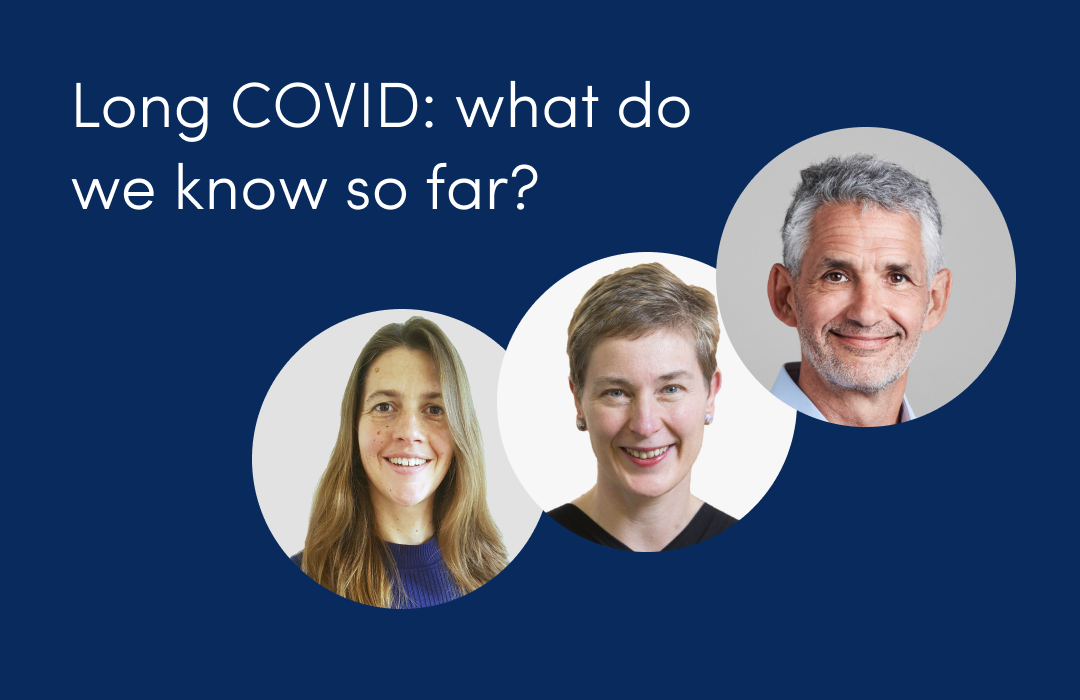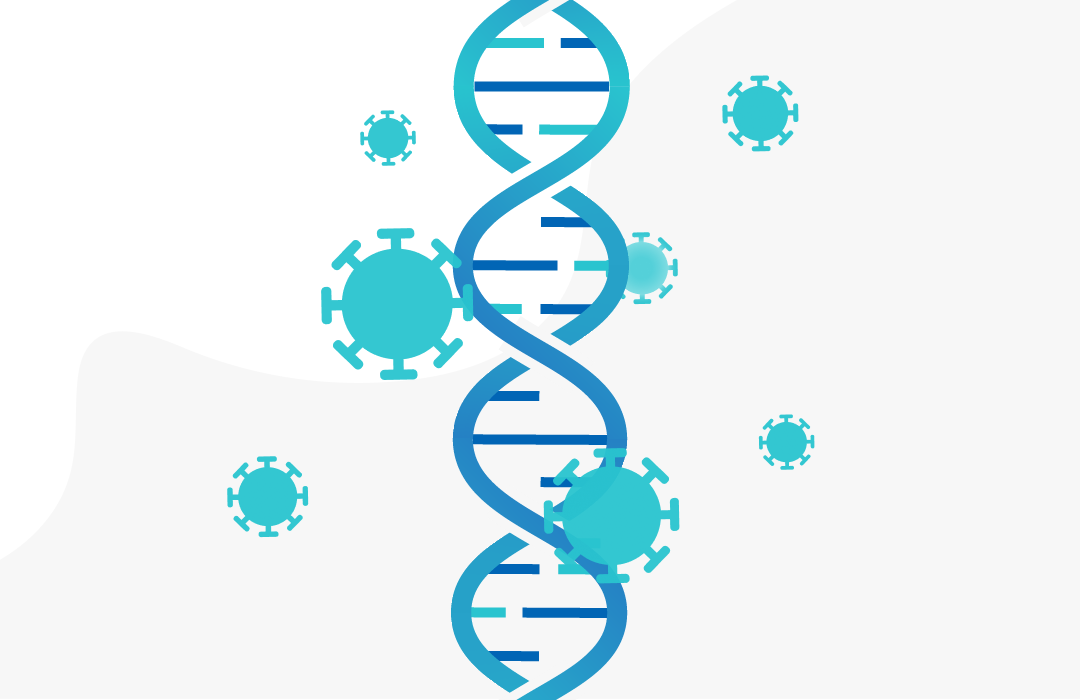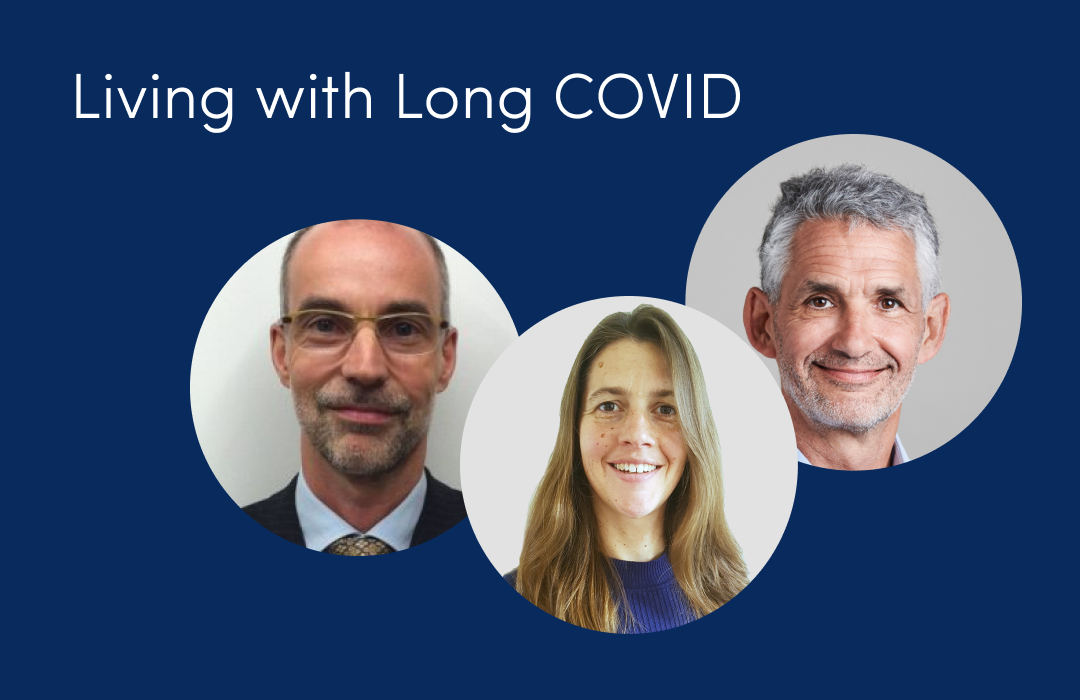
Long COVID: What do we know so far?
July 27, 2021

This article has not been updated recently
In our latest webinar, our scientific co-founder, Professor Tim Spector, lead scientist at the ZOE COVID Study, was joined by two experts from King's College London: Professor of clinical endocrinology, Emma Duncan, and Dr Claire Steves, Reader in ageing research.
They discussed what we know so far about long COVID and answered your questions about who gets it and how we can treat it.
What is long COVID?
For most people, COVID is a short, mild illness, but some are not so lucky and end up being ill for weeks or even months following infection.
Although the vaccinations are currently keeping COVID-19 hospitalisations and deaths low, there are concerns the number of people developing Long COVID could rapidly increase, with serious implications for long-term health and the NHS in the future.
“The National Institute of Clinical Excellence (NICE) defines long COVID as having more than four weeks of symptoms after testing positive for COVID-19 or having a COVID-like illness, where an alternative diagnosis can’t explain the symptoms,” says Claire.
Data from the ZOE COVID Study and other researchers suggests that 1-5% of people who get COVID experience debilitating symptoms, to the point where they can’t carry out their usual activities, for 12 weeks or more. The exact duration varies, but a very small number of people have had long COVID since the first wave of infections during Spring 2020.
Although long COVID is often characterised by fatigue, many different symptoms have been reported.
“One of the things that we're still grappling with is whether this is just one condition or is there more than one thing which is currently being included under the umbrella of long COVID or post-COVID syndrome?” says Emma.
She explains that for some people, the condition could be the result of auto-immune reactions. For others, it could be the consequences of having been very sick with COVID-19 or because they were very frail before contracting the virus, and that these are only some of the possible mechanisms. These different causes of long COVID could explain why such a variety of symptoms have been reported.
Because people experience long COVID in many different ways, there is currently no test for the condition. Instead, if your doctor suspects you have long COVID, you are likely to have a series of tests to rule out other conditions that may be causing your symptoms. For example, you may be tested for anaemia, which can also cause fatigue.
What does the data tell us about long COVID?
The data shows the chance of developing long COVID increases with age.
“The rates of long COVID range from about 1 to 2% for people in their twenties to about 5% for people in their sixties,” says Claire.
Reassuringly, data from the ZOE COVID Study has confirmed that long COVID is very rare in children.
“About 4.5% of children who have confirmed COVID still have symptoms after four weeks, but by the time you get up to eight weeks, it’s only about 1.5%,” says Emma.
Analyses have shown that long COVID is more common in women than men. It’s also more common in people who had asthma before contracting COVID-19, suggesting that immune responses could contribute to the condition. Poor physical or mental health prior to infection also increases the risk of developing long-term effects.
All our experts agree that the single best way to protect yourself against long COVID is to get vaccinated so you reduce your chances of contracting it in the first place.
“Firstly, your risk of getting COVID is cut by at least 60% after having one vaccine and by at least 85% after double vaccination,” says Claire. “And if you are unlucky enough to get COVID after vaccination, your risk of developing long COVID is dramatically reduced, and that’s true in all age groups.”
What’s next for long COVID?
We expect to learn much more about why some people develop long COVID over the next year. Understanding the underlying causes could point towards more effective treatments to help people recover.
Emma thinks we can also draw on the knowledge we have about other conditions such as glandular fever or chronic fatigue syndrome (CFS/ME).
“This is not the first or the only illness that can have prolonged effects,” she says. “I think we can build on research done in other illnesses to help us understand long COVID and identify treatment strategies which have helped in other similar conditions.”
Some people have questioned whether steroids, which have been approved to treat acute COVID, may help people suffering from long COVID.
“There's no doubt that in serious acute respiratory illness, steroids make a big difference,” says Emma, explaining that more research is needed to confirm whether steroids could also benefit people with long COVID.
“Steroids also can cause a lot of side-effects, so it's always about striking a balance between the benefits and the side-effects,” she adds.
Ongoing clinical trials are investigating whether medications like blood thinners or statins can benefit people with long COVID. However, because long COVID is a diverse illness that could have various causes, our experts think that treatments will need to be individualised, with a range of medications, rehabilitation and therapies depending on individual circumstances.
“One size is not going to fit all when it comes to treating long COVID, and understanding the causes may also help us to work out which solution is the best for you,” says Emma.
As we move forward, it’s vital that we gather as much information as possible about the impact of COVID-19 across the population. You can play your part in our ongoing research into long COVID by downloading the ZOE COVID Study app and taking just a minute every day to log your health.
Stay safe and keep logging.












.png)


.jpg)














.png)







%202.png)
.png)

















.png)




%20(1).png)


